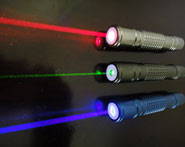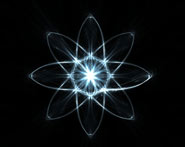


 الفيزياء الكلاسيكية
الفيزياء الكلاسيكية
 الكهربائية والمغناطيسية
الكهربائية والمغناطيسية
 علم البصريات
علم البصريات
 الفيزياء الحديثة
الفيزياء الحديثة
 النظرية النسبية
النظرية النسبية
 الفيزياء النووية
الفيزياء النووية
 فيزياء الحالة الصلبة
فيزياء الحالة الصلبة
 الليزر
الليزر
 علم الفلك
علم الفلك
 المجموعة الشمسية
المجموعة الشمسية
 الطاقة البديلة
الطاقة البديلة
 الفيزياء والعلوم الأخرى
الفيزياء والعلوم الأخرى
 مواضيع عامة في الفيزياء
مواضيع عامة في الفيزياء|
Read More
Date: 26-10-2016
Date: 13-10-2016
Date: 3-10-2016
|
Room Light
Suppose there is a photo detector with a flash lamp at the exact center of a 3 m × 3 m × 3 m dark, barren room with reflective walls. The flash lamp flashes for one nanosecond. For simplicity, assume that the light is emitted isotropically in all directions when the lamp flashes. If the photo detector simply sums the light from all directions, what is its recorded intensity versus time? If the photo detector is an array capable of discerning different angular directions, what is the intensity versus time for several different directions? Suppose the lamp flashes for one microsecond. What now?
Answer
For a nanosecond flash, the light pulse length d = 30 cm is calculated with d = ct, where c is the speed of light and t is the time interval. When summing all the entering light, the photo detector displays an initial rise from the light scattering from nearby walls with increasing intensity until maximum, and then a decrease to zero after the light from the far-corner reflections is received. The detailed intensity curve could be simulated on a computer.
With the photo detector array, the image shows the six nearest spots—the centers of each equidistant flat surface which grow bigger and then form rings of reflected light, then many arcs of light until eight corners appear and disappear. When the flash length is extended to 1 microsecond, the light pulse is 300 meters long. There will be an initial detector response rise and the rings of light from the walls will be seen for a very small fraction of the total imaging, then flooded, then decreased.
We are not accustomed to light pulses lasting for milliseconds or less in daily life. But even nanosecond pulses are very long in some research fields. For example, femtosecond (10–15 second) and shorter light pulses are used in chemistry to watch molecular interactions in progress. The present record for subdividing the second with a laser strobe light is a few hundred attoseconds, an attosecond being a billionth of a billionth of a second!



|
|
|
|
تفوقت في الاختبار على الجميع.. فاكهة "خارقة" في عالم التغذية
|
|
|
|
|
|
|
أمين عام أوبك: النفط الخام والغاز الطبيعي "هبة من الله"
|
|
|
|
|
|
|
قسم شؤون المعارف ينظم دورة عن آليات عمل الفهارس الفنية للموسوعات والكتب لملاكاته
|
|
|